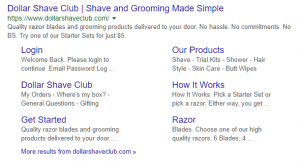4 questions to avoid asking in a first-round interview
These aren’t necessarily bad topics, but in the early stages of interviewing, it’s important to emphasize your enthusiasm for the role.
You made it to the end of the first interview. Chances are, the hiring manager will ask this final question: Do you have any questions for me? You probably know you should ask something—having a question at the ready will show that you’re interested—but there are some things better left unasked because they can send the wrong message.
“We’ve seen a shift in what types of questions candidates are asking, and whether or not it increases or decreases their likelihood of being an appealing candidate,” says Natalie Boren, senior vice president for the recruitment and advisory firm Career Group.
Boren says some questions that were common to ask just a year or two ago could be considered a deterrent to bring up in a first-round interview. In today’s competitive job market, she recommends avoiding these top four:
Is there an option to work remotely or hybrid?
Since the pandemic, it was common to ask about remote schedules and work-from-home arrangements. However, with an increase in return-to-work mandates, this question can be a deterrent in a first-round interview, says Boren.
“Companies are pushing to bring the workforce back on site as much as possible,” she says. “They want to make sure that the person they invest time in training and getting up to speed is not going to come to them 90 days or six months later and say that they prefer working from home.”
If you bring up this question too early, you might look like someone who might not commit to being at the office. Boren says most job ads will specify if an opportunity is remote. If it doesn’t say so in the posting, it’s safe to assume it will be an on-site position.
“And if the job is advertised as on-site, don’t bring up remote work or hybrid options too early,” says Boren. “Asking for special exceptions before proving yourself can signal a lack of commitment to the company’s current needs and culture.”
What are the growth opportunities in this role?
Growth opportunities are one of the main reasons people accept roles, especially Gen Z. Growth is also important to your potential employer, who will want to see you thrive within the company. However, asking about a career path too soon could be a red flag for an employer. You may appear overly ambitious, or it may look like you consider the job they need to fill as just a stepping stone in your career, says Boren.
“Instead, what are the priorities for the position you’re interviewing for?” she asks. “Your focus should be about being the right fit for that job and doing the best that you can do within that role before you start fast-forwarding to next steps.”
What is the work-life balance here?
Another important aspect of choosing the right role is having a good work-life balance. No one wants to take on the risk of burnout because they’re tied to their job. While this is a valid question, Boren says it could make a hiring manager wonder about how invested you’d be.
“Somebody who’s interviewing you for a position wants to know that you’re ready to work hard and do whatever it takes to succeed,” she says. “If you’re in the infancy stages of interviewing, asking ‘What is the work-life balance like’ projects an aura that you are not looking to work hard, and that you’re more focused on what’s happening outside of work.”
Instead, frame your questions in a way that shows you will be dedicated. If you have outside responsibilities, Boren suggests bringing up your needs in a way that establishes boundaries while demonstrating your commitment. For example, you could ask, “I have a child that I need to pick up at four o’clock. I can log back online if needed to make sure I’m able to finish everything that I start. Would that schedule work for this position?”

What can I expect to receive as a salary?
Let’s get real. Everyone wants to know what their salary will be. And many states have passed pay transparency laws that make getting this information a lot easier. Inserting high salary expectations right up front, though, can derail your interview progress.
“Everybody has every right to understand what the earning potential is in a position that they’re interviewing for, but it should never be the first or second thing that’s discussed,” says Boren. “An organization wants to feel that somebody’s interviewing for a position because they’re invested in the company; because they’re excited about the day-to-day; because they’re passionate about what they’re doing.”
Hiring managers will discuss the financial aspect of the role, but they’ll want to first talk about job responsibilities, why you’re a good fit, and what’s important to the organization. Money alone should not be the reason somebody is interested in the position, says Boren.
If money isn’t discussed during the interview, it’s fine for a candidate to ask about the salary during the final steps of the interview process. And if a hiring manager provides a range, Boren says it’s also acceptable at the end of the interview for the candidate to ask how the company goes about placing someone within that range.
While these questions will give you information that will help you decide if the job and the company are a fit for you, asking them too soon could stop you from moving forward. The lesson here is to make sure you’re asking the right questions at the right time.
(1)
Report Post







